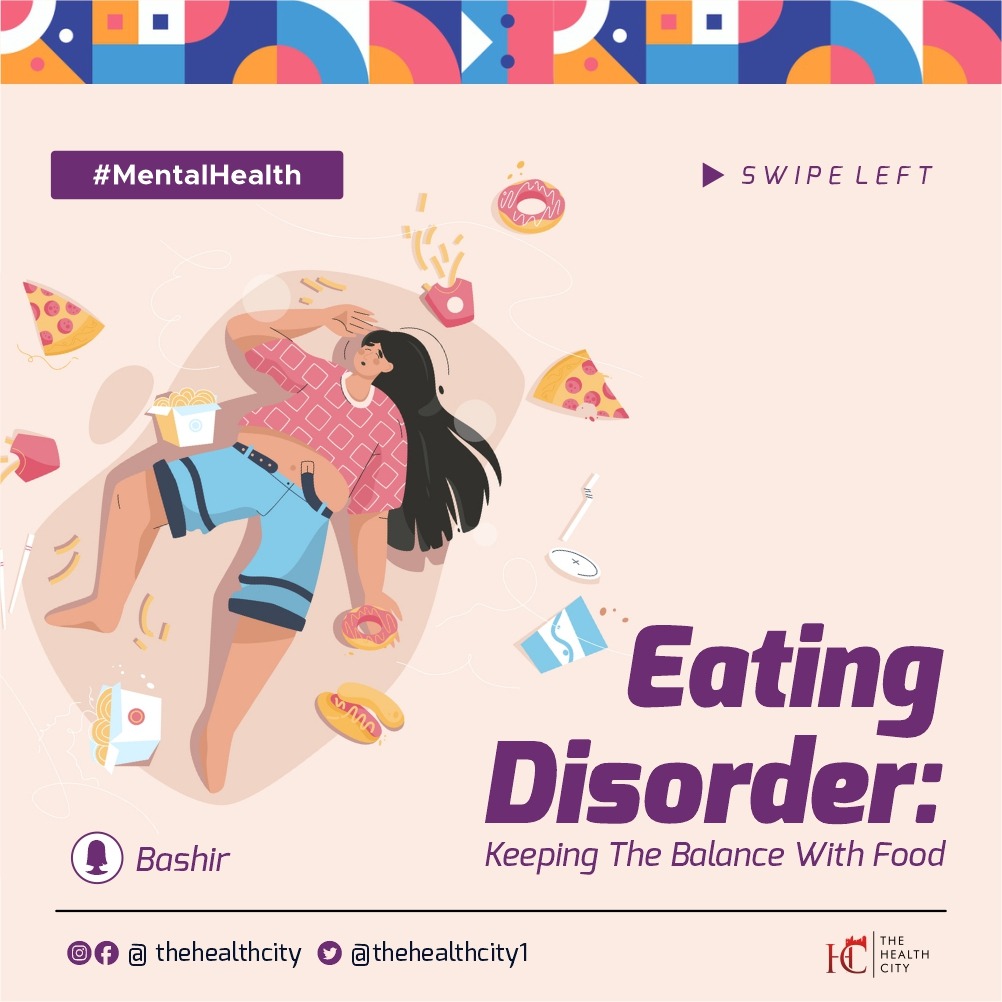
Eating Disorder: Keeping The Balance With Food
Eating disorders are mental health conditions marked by an obsession with food or body shape. They can affect anyone but are most prevalent among young women. Eating disorders may be caused by several factors. These include genetics, brain biology, personality traits, and cultural ideals.
Eating disorders are a collection of thoughts, feelings, and behaviors that are not just weight and food related but also include disordered thoughts about health. This creates rigidity or chaos that impacts quality of life and perpetuates the striving for “healthy” ideals--which then borders on disordered. As the aggregate of thoughts and behaviors become driven, automated, or compulsive, there is initially a loss of vitality and spontaneity replaced by rigidity. At the very least, this creates eating disordered thoughts and behaviors and, at worst, it precipitates an eating disorder.
Eating disorders can take various forms, including:
1) Overeating
2) Undereating
3) Purging
The key to maintaining recovery is to find balance in your eating and exercise habits. Here are several ways to do that:
1) Incorporate Healthy Foods into Your Diet: You can put this into practice by including a variety of healthy foods in your meals. Be careful not to fixate on certain types of foods. Rather, aim for variety and focus on foods that make you feel good and healthy.
2) Practice Intuitive Eating: Rather than focusing on a particular type or amount of food, focus instead on what your body is telling you. This process, called intuitive eating, is highly effective for maintaining recovery. Tune into your natural hunger and fullness signals and allow yourself to eat what you are craving. Your body knows what it needs.
3) Establish a Healthy Exercise Routine: Whatever type of exercise you do, ask yourself why you are doing it. Is it for enjoyment or out of a sense of obligation? Are you focusing on fitness and health, or on maintaining a certain performance level? Refrain from using measurements like distance, speed, or length of time. Instead, focus on what your body is telling you about your energy levels. Stop when you feel tired.
4) Focus on Positive Body Image: Our society puts a lot of emphasis on looking a certain way, and this can cause people in recovery to feel triggered. It’s important to limit your exposure to media messages of the so-called “ideal body” and realize that there is no such thing as an ideal. Every person looks different, and this is normal. Focus on embracing your body as it is.
5) Practice Self-Care: Find activities that bring you joy and promote mindfulness, such as art, writing, or music. Take time for yourself every day.
6) Inform Your Doctor of Your Eating Disorder: Your doctor should be one of your strongest support systems in recovery, since he or she is focused on helping you achieve overall health and fitness.

Latest Comments
No Comments Yet
To write a comment, You must be logged in
Login Here SIGN IN